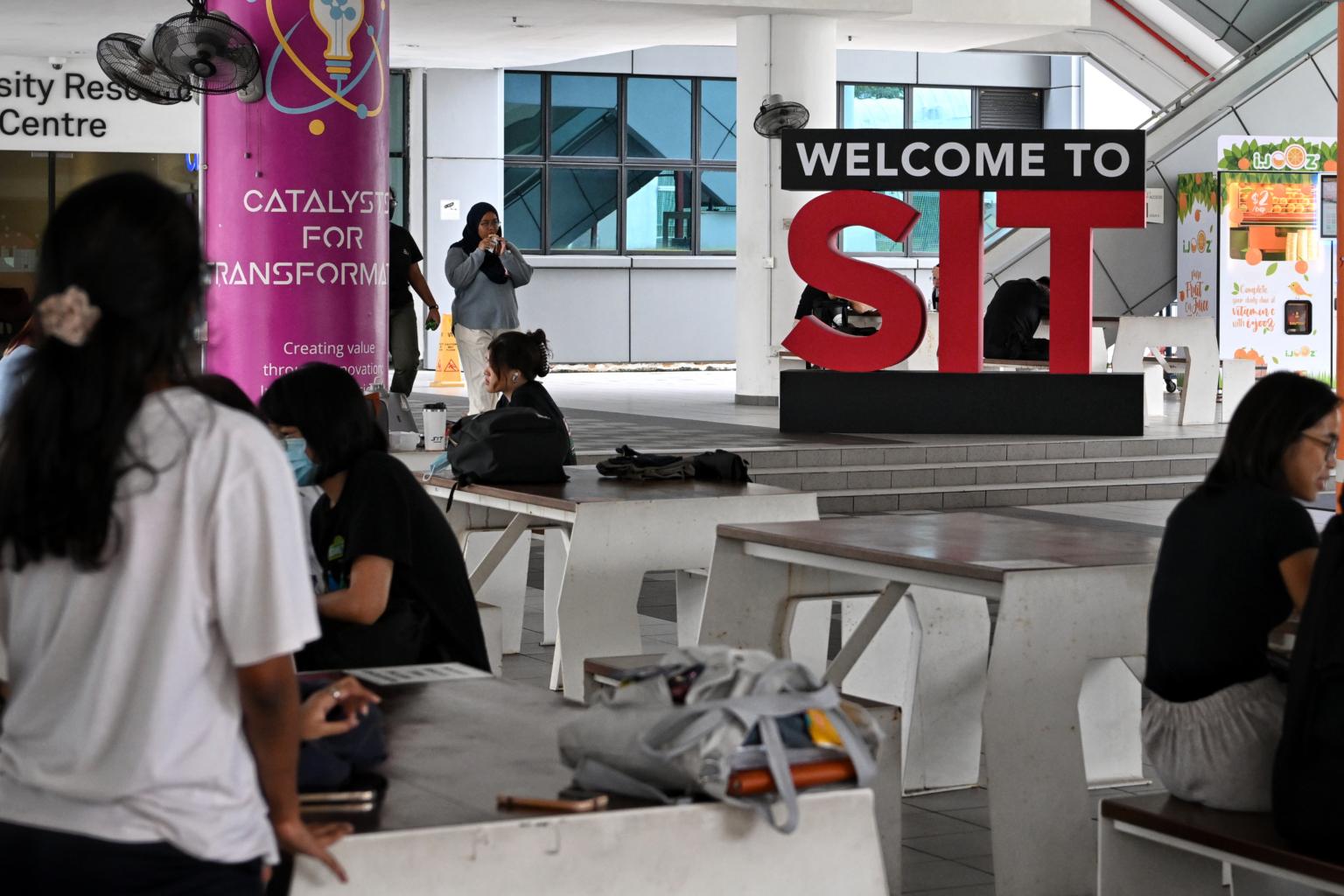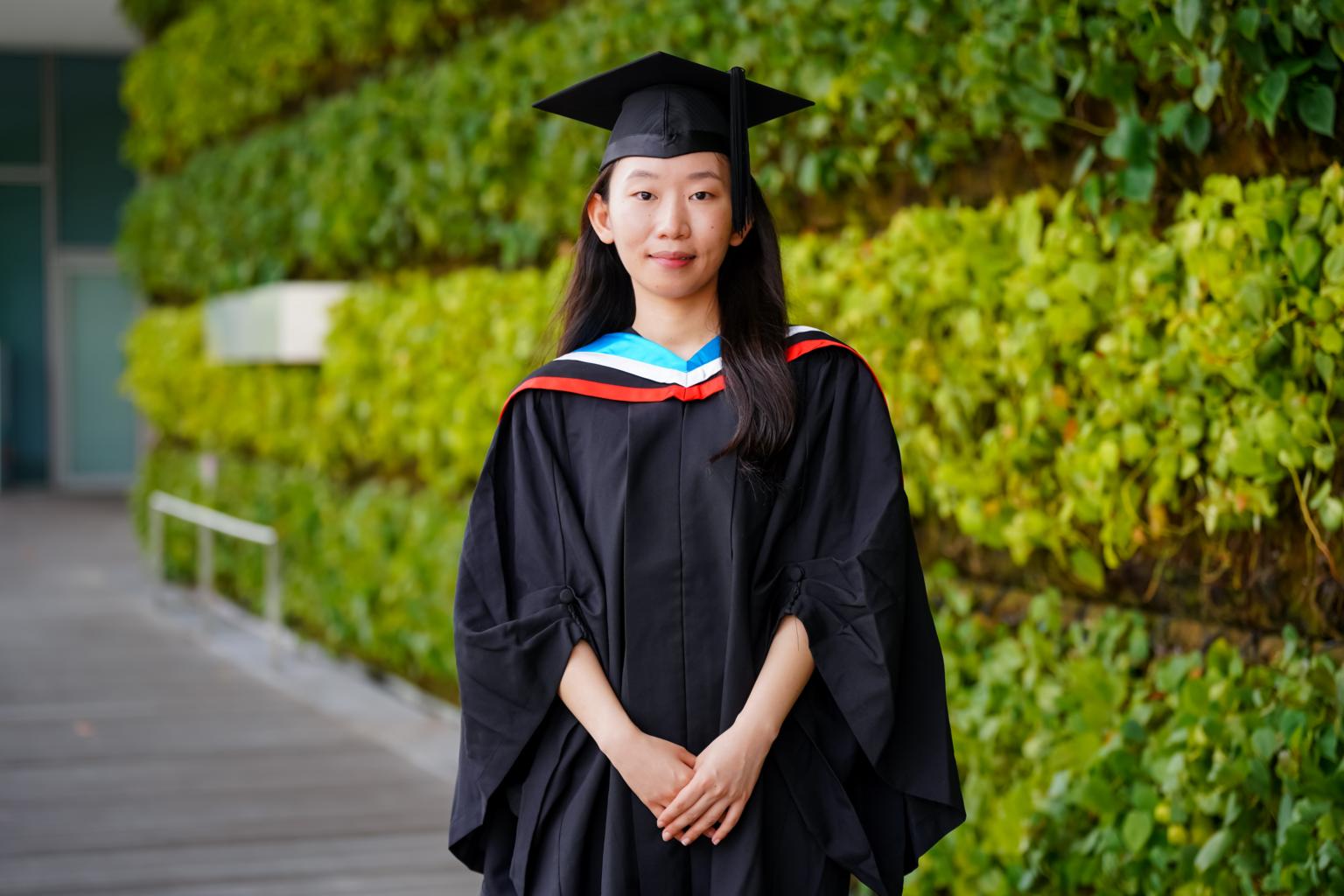Two-thirds of SIT's Class of 2022 secured full-time jobs ahead of graduation
Sign up now: Get ST's newsletters delivered to your inbox

The Class of 2022 is SIT's largest cohort to date, with more than 2,200 graduates.
ST PHOTO: KUA CHEE SIONG
Amelia Teng and Jasmine Teo, Amelia Teng
Follow topic:
SINGAPORE - About two in three graduates from the Class of 2022 at the Singapore Institute of Technology (SIT) found full-time jobs ahead of graduation this year.
For degree programmes in certain fields - pharmaceutical engineering, infocomm technology, allied health and built environment - more than nine in 10 graduates secured full-time employment.
SIT president Chua Kee Chaing shared these findings - based on a preliminary employment survey of some 1,700 graduating students conducted by the university in August - on Thursday on the sidelines of one of its graduation ceremonies.
About 380 graduates including those from the allied health programmes such as radiation therapy and occupational therapy attended two sessions on Thursday.
The Class of 2022 is also SIT's largest cohort to date, with more than 2,200 graduates from 47 undergraduate and postgraduate programmes.
At this year's graduation ceremony, SIT conferred its first honorary degree to founding chairman of SIT's board of trustees Ng Yat Chung.
He received a Doctor of Letters for his role in the growth of SIT as Singapore's first university of applied learning.
In a speech to graduating students, Deputy Prime Minister and Finance Minister Lawrence Wong said that allied health professionals will play a vital role in the growing healthcare sector, especially in supporting Singapore's ageing population.
"Beyond finding employment, you can look forward to continued advancement, learning and transformation in your careers. For example, for diagnostic radiographers and radiation therapists, advancements in technology are promising to revolutionise patient assessment and treatment," he added.
"With artificial intelligence, with technology, with new treatment protocols, things are continuing to evolve and all that means our graduates here today will have the ability to continue delivering even better quality of care.
"But it also means that you will have to continue learning new skills and new ways of doing things throughout your careers."
Ms Soh Yan Qi, 23, who graduated with a bachelor of science with honours in radiation therapy, said she wanted to pursue a healthcare-related course to help others, in particular those with cancer because of a family history of cancer.
She was drawn to SIT as it offered allied health courses unlike other local universities, and picked radiation therapy after learning that it is also a form of treatment for cancer patients, apart from chemotherapy.

Ms Soh, whose father is a manager in the medical industry and mother a housewife, started work in August as an executive for the Singapore Infectious Diseases Clinical Research Network at Tan Tock Seng Hospital.
She picked up simple sign language during her time at SIT in its sign language club, with patients in mind.
"We never know who we will meet. Sign language skills are useful if I ever meet a patient who requires me to sign," said Ms Soh, who has plans to take a master's degree specialising in a specific cancer after working for a few years.
Speaking to The Straits Times, Prof Chua said that SIT has started a new pathway that will allow students to get work experience as early as in their first year.
Delivered in a format called Term-In/Term-Out, students will alternate their time between the university and the workplace every year.
For example, the first batch of 40 students in the applied computing with fintech degree programme will be spending eight months in school, starting September 2022, followed by four months at the workplace.
In September 2023, another cohort of 40 students will take on this mode of learning, as part of the robotics systems degree programme, in partnership with German technology company Siemens.
"For programmes like these, we have to work closely with the company to make sure that the student continues to learn and gain credit towards the degree," said Prof Chua, adding that other fields such as logistics and supply chain management could also take on such a mode of learning.

